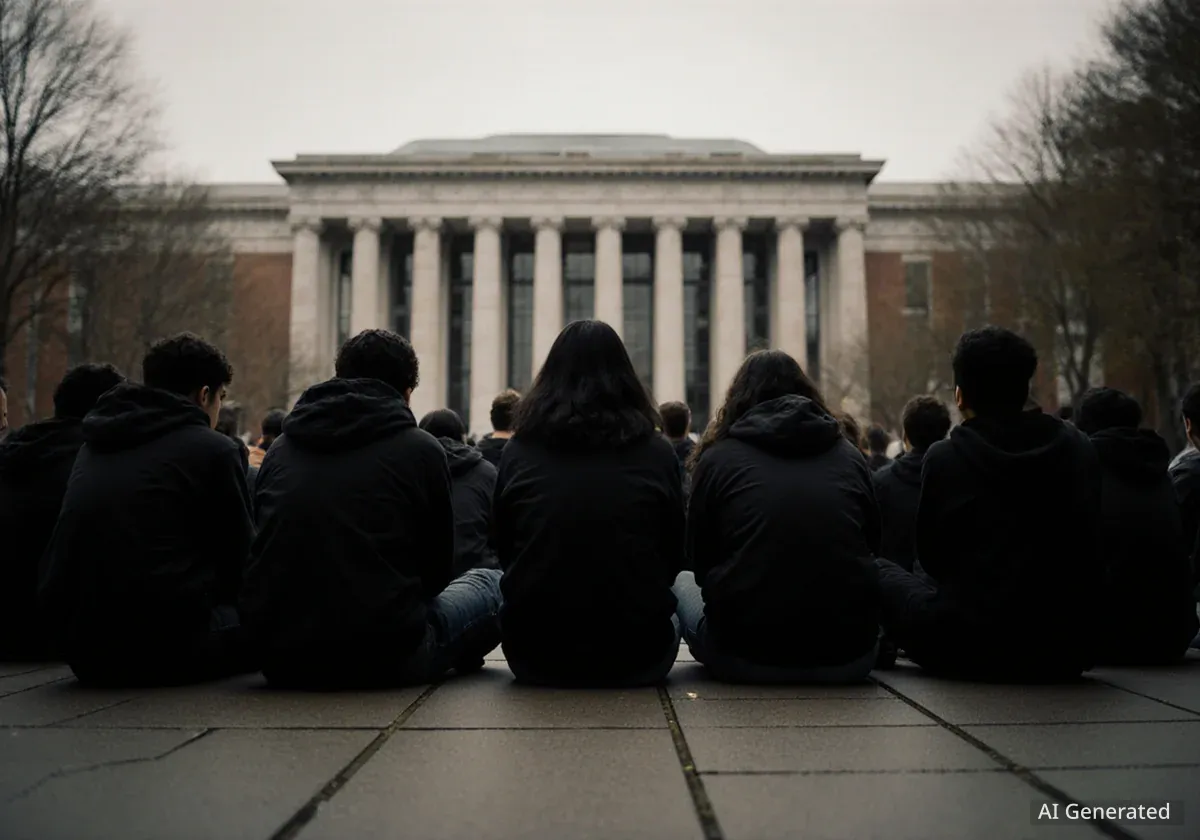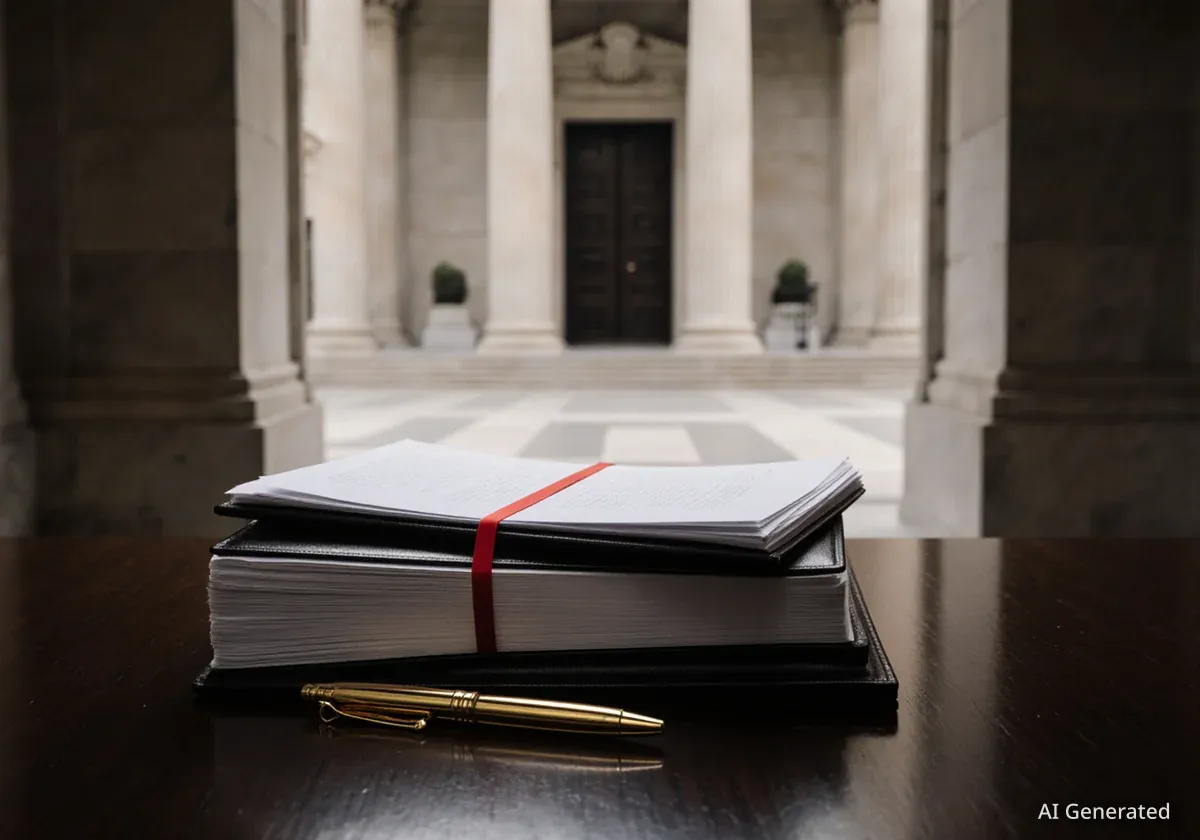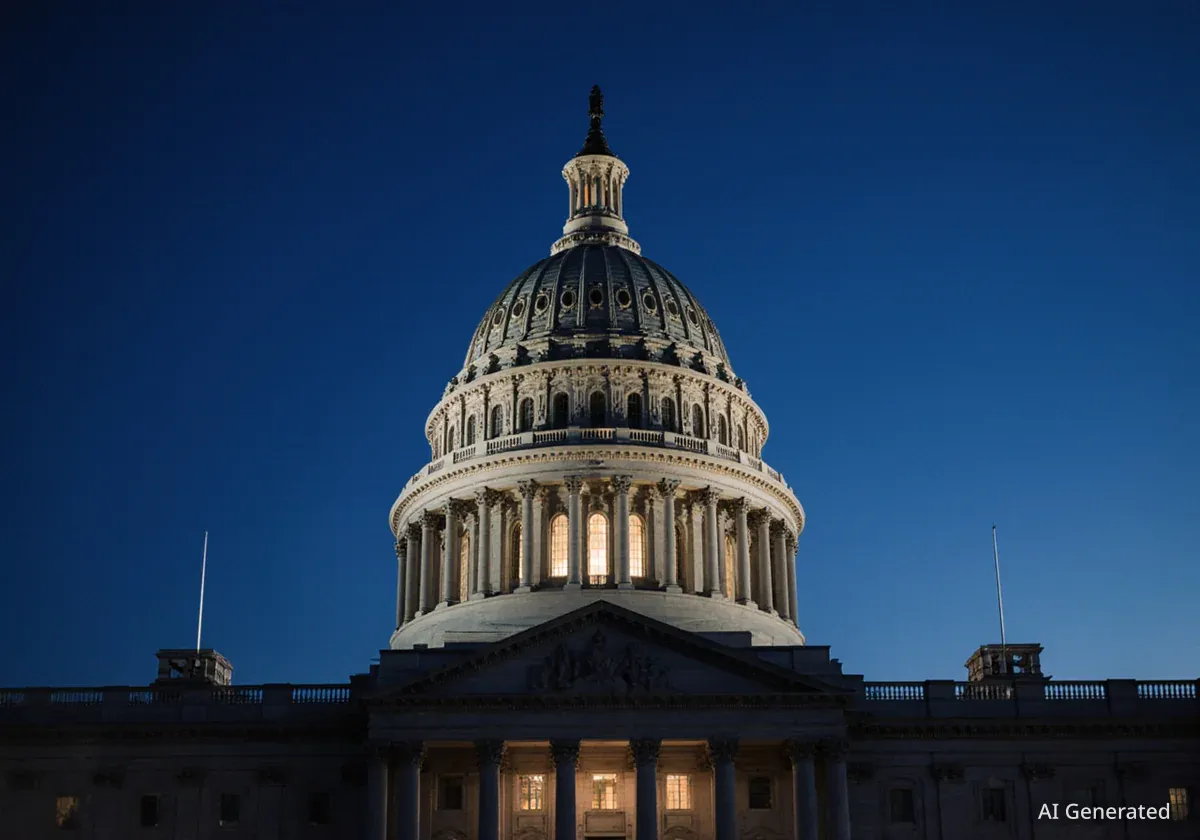A controversial proposal from the Trump administration, titled the “Compact for Academic Excellence in Higher Education,” is facing significant opposition from the academic community. The proposal offers universities preferential access to federal funding in exchange for adhering to a set of conditions that critics argue would severely undermine academic freedom and institutional autonomy.
Faculty members at the University of Pittsburgh are now urging their administration to join a growing list of prominent institutions, including MIT and the University of Pennsylvania, in publicly rejecting the compact. They contend the agreement is designed to exert political control over higher education.
Key Takeaways
- A Trump administration proposal offers universities federal benefits for agreeing to specific ideological and operational conditions.
- Key conditions include limiting campus demonstrations, freezing tuition for five years, and capping international student enrollment at 15%.
- At least seven of the nine universities initially approached have publicly rejected the compact, citing threats to academic freedom.
- The University of Pittsburgh's chapter of the American Association of University Professors (AAUP) is calling for a public and unequivocal rejection from Pitt leadership.
Understanding the 'Compact for Academic Excellence'
The nine-page document was presented in early October to nine universities, including Vanderbilt and the University of Texas, framing the American higher education system as the “envy of the world.” It outlines a partnership where signatory institutions would receive enhanced access to federal benefits like student loans, grant programs, and research funding.
However, these benefits are contingent on accepting a detailed list of requirements. The proposal states that institutions are free to operate under different values but only if they “elect to forego federal benefits.” This condition has been interpreted by many as a coercive measure to enforce a specific political agenda on campuses.
A Pattern of Influence
This compact is seen by some observers as the latest in a series of efforts by the administration to influence higher education. Previous actions have involved targeting universities over issues such as diversity, equity, and inclusion (DEI) initiatives, campus protests related to geopolitical events, and policies regarding transgender athletes.
The Conditions Causing Alarm
Several specific clauses within the compact have drawn sharp criticism from academic leaders and faculty groups across the country. These requirements touch upon core aspects of university operations, from admissions to campus life.
Admissions and Diversity
The compact would require participating schools to eliminate the use of “sex, ethnicity, race, nationality, political views, sexual orientation, gender identity, religious associations, or proxies for any of those factors” in admissions or financial aid decisions. It also mandates that gender be defined strictly “according to reproductive function and biological processes.”
Restrictions on Speech and Protest
One of the most contentious points is the proposed limitation on campus demonstrations and institutional speech. The document would require schools to prevent university representatives from making statements or taking actions on “societal and political events” that do not directly affect the institution. Furthermore, it includes a provision to protect “conservative ideas” from what it terms belittlement or demeaning treatment.
By the Numbers: Key Mandates
- 5 Years: The required length of a tuition freeze for American students.
- 15%: The maximum percentage of international students allowed in the undergraduate population.
A Chorus of Rejection from Top Universities
The response from the higher education community has been swift and largely negative. Of the initial nine universities that received the proposal, seven have already issued public rejections. These institutions include:
- Massachusetts Institute of Technology (MIT)
- University of Pennsylvania
- University of Southern California
- University of Kansas
- Washington University in St. Louis
Vanderbilt University and the University of Texas have not yet announced their final decisions. Meanwhile, the New College of Florida, which recently underwent a state-led conservative restructuring, has reportedly expressed support for the compact's principles.
National organizations have also weighed in. The American Council on Education issued a statement opposing the agreement. In a joint statement, the presidents of the American Association of University Professors (AAUP) and the American Federation of Teachers (AFT) condemned the proposal.
“The Trump administration’s offer to give preferential treatment to colleges and universities in exchange for allegiance to a partisan ideological agenda stinks of favoritism, patronage, and bribery. It is entirely corrupt.”
University of Pittsburgh Faculty Urge Leadership to Act
In Pittsburgh, the local AAUP chapter has formally requested that Chancellor Joan Gabel and the university's leadership publicly reject the compact. In a statement released this week, the group described the proposal as an attempt to place universities under “unprecedented federal oversight.”
Michael Goodhart, a political science professor and the acting president of AAUP-Pitt, explained the faculty's position, emphasizing the broader implications for democratic society.
“We think it’s important for universities including our own to be explicit about the fact that this compact is antithetical to the values not just of higher education but of a democratic society,” Goodhart stated. He expressed concern that the compact is intended to create a “chilling effect” on educators, making them second-guess their teaching and research.
Goodhart views the compact as a “trial balloon” from the administration to test the waters for further reforms aimed at shaping academia to its liking. “I think that the more resoundingly that trial balloon is shot down, then the better off we’ll be for what comes next,” he added. “Because this won’t be the last attempt to influence or reform higher education.”
When asked for a response, a spokesperson for the University of Pittsburgh declined to comment on the matter. The position of other major local universities, including Carnegie Mellon and Duquesne, remains unclear as they have not yet issued public statements.





